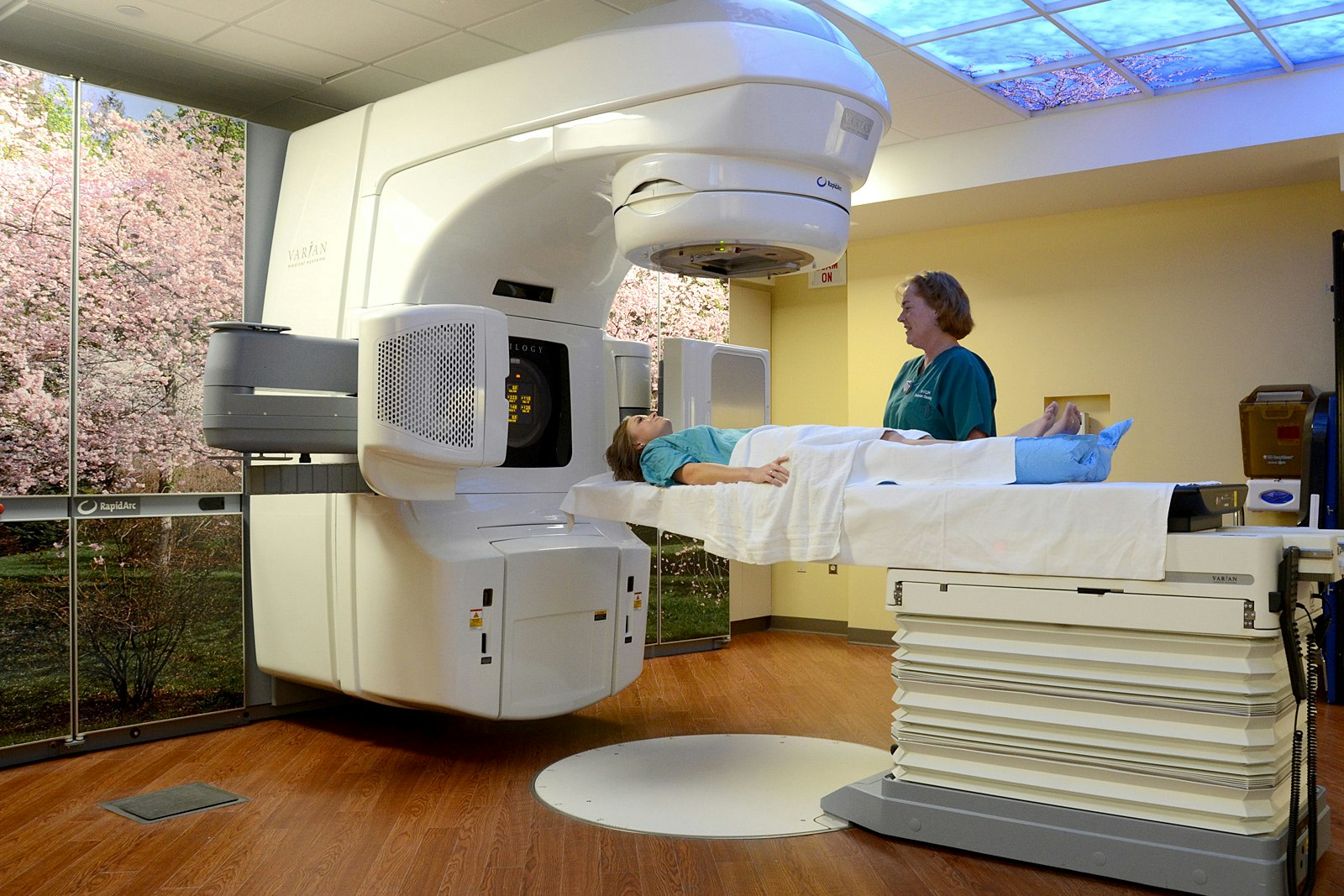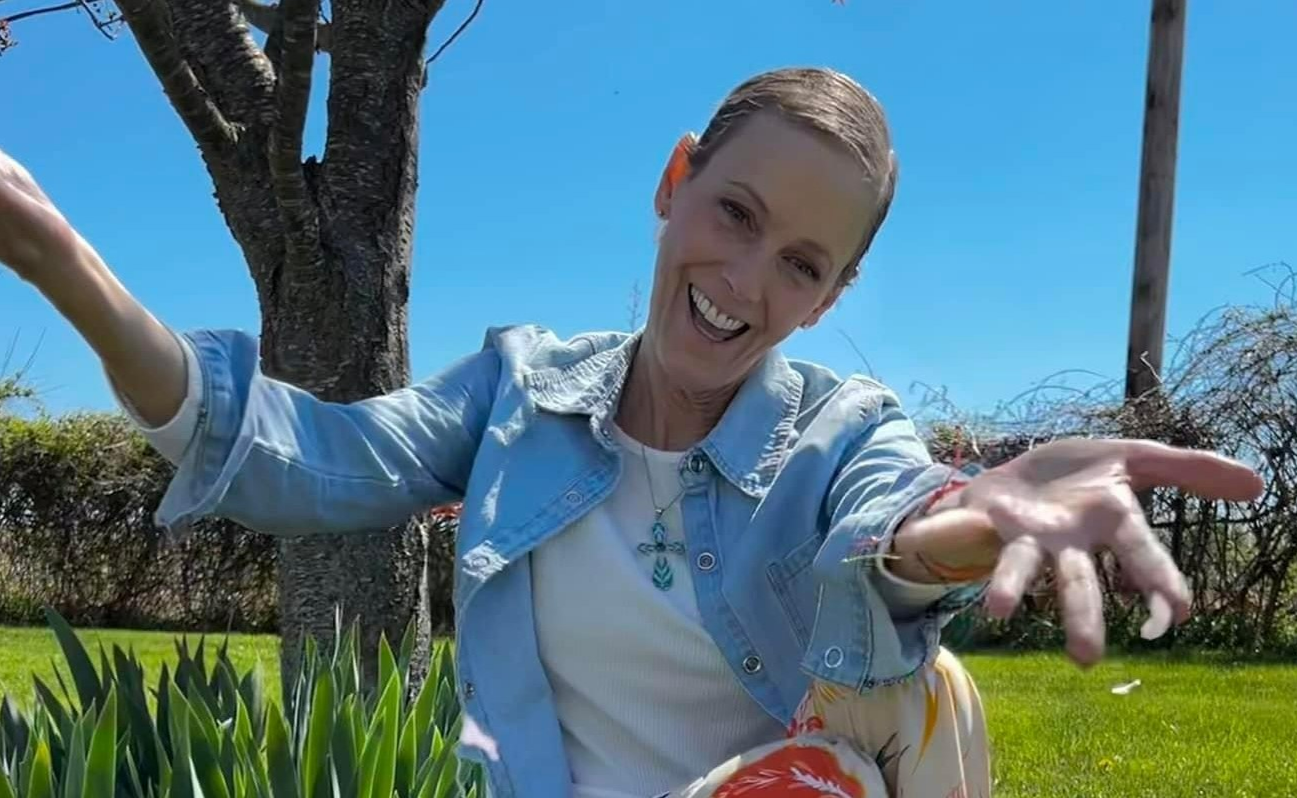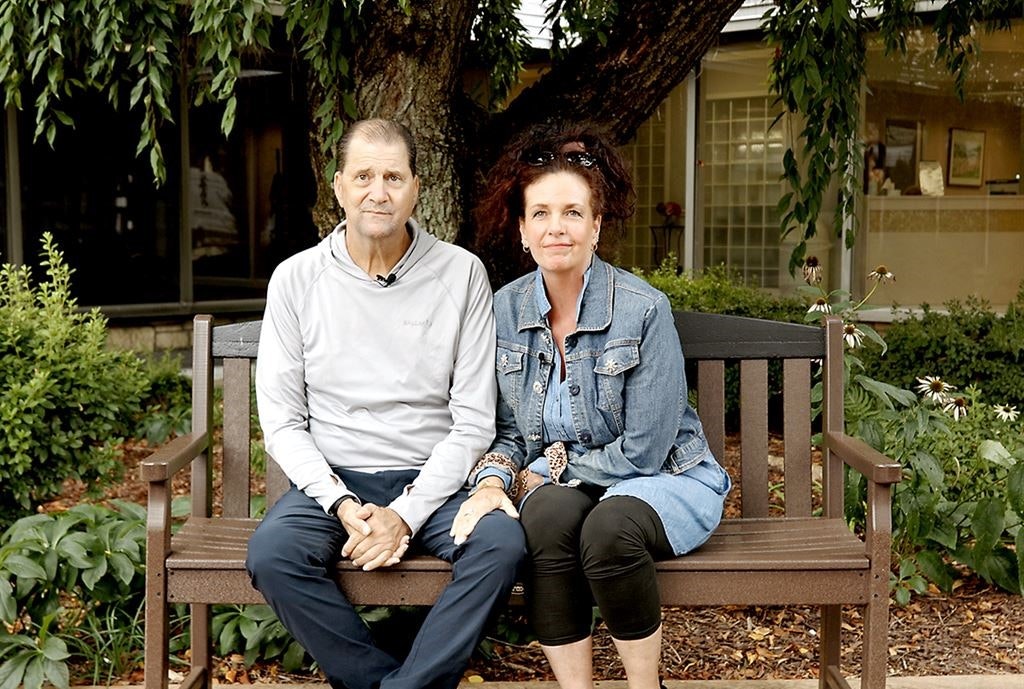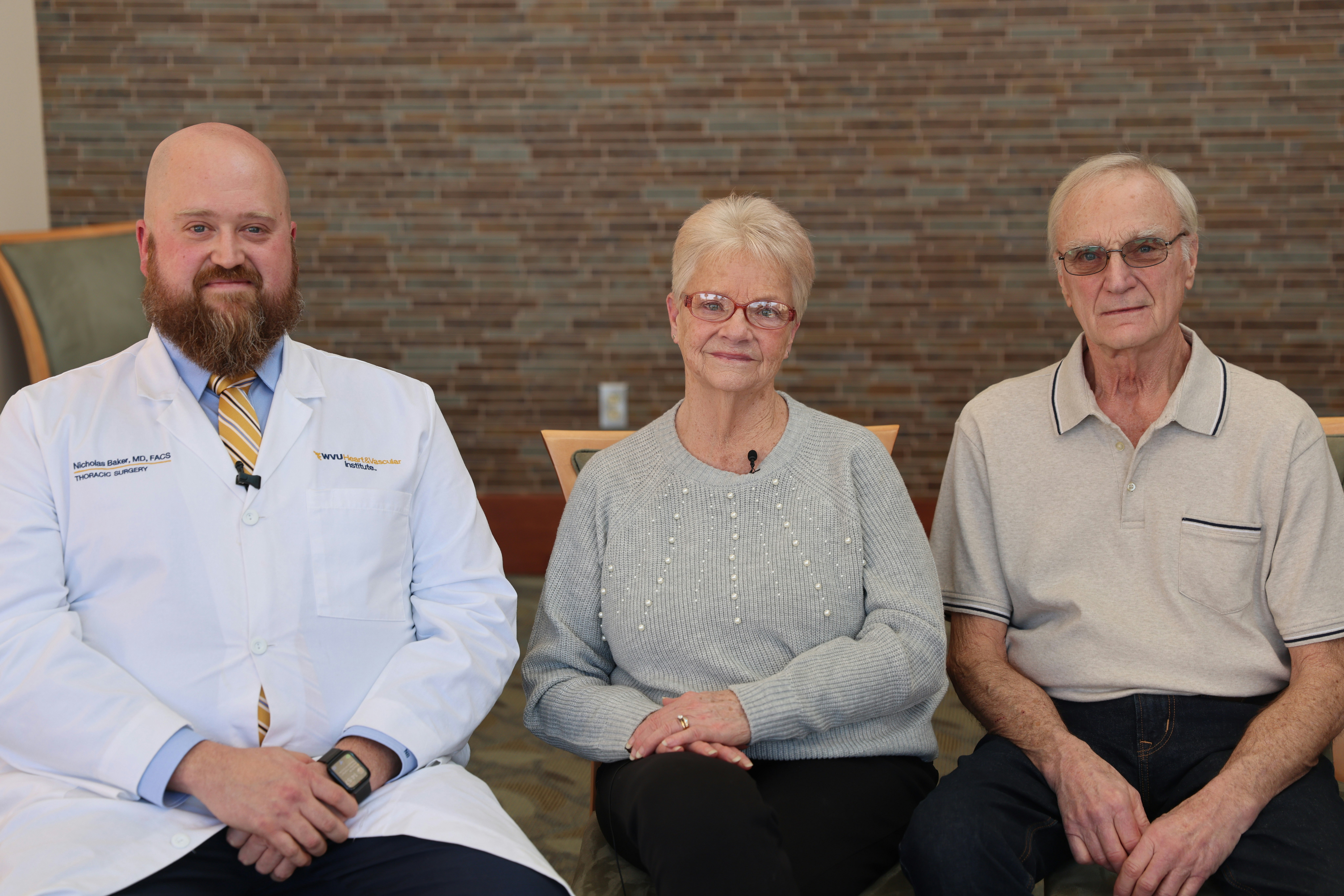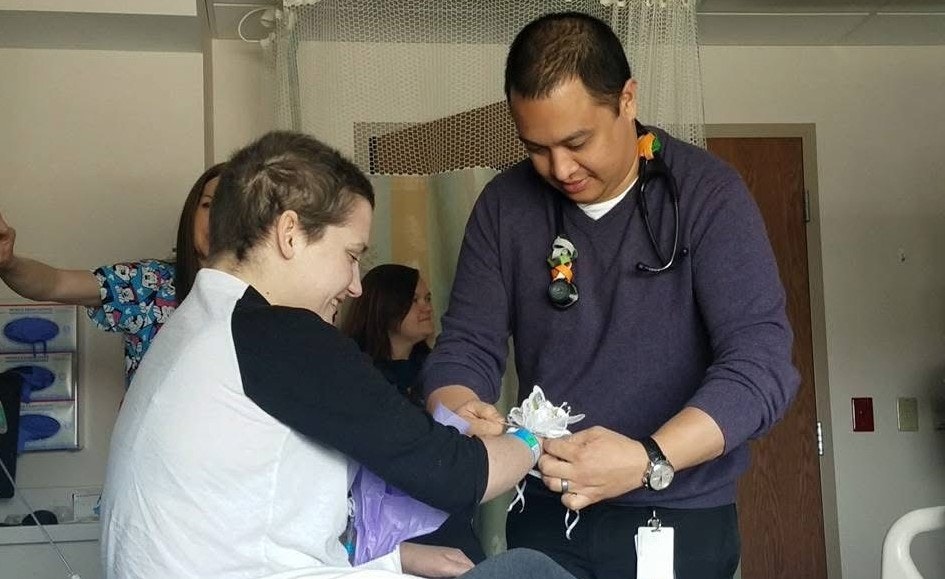Mesothelioma cancer can occur when asbestos particles are inhaled or swallowed. These fibers can travel to the lungs and abdomen and cause inflammation and scarring. Over time, cancerous cells form in the abdomen, lungs, or the lining of the chest. Most people diagnosed with mesothelioma have worked or lived in places with asbestos. This type of cancer is very aggressive but can take years to form.
At the WVU Cancer Institute, our experts keep their focus on each individual they treat. A cancer diagnosis can be frightening, but you’ll have access to some of the nation’s best and most compassionate cancer care.
Depending on how the cells look, mesothelioma cancer is grouped into three main types:
- Epithelioid, the most common type of mesothelioma
- Mixed (biphasic), a type of mesotheliomas that contains both epithelial and sarcomatoid cells
- Sarcomatoid, a type of mesothelioma also referred to as spindle or diffuse malignant fibrous mesothelioma
Risks for Mesothelioma Cancer
The majority of those diagnosed with mesothelioma were exposed to asbestos. Risk factors for mesothelioma include:
- Environmental asbestos exposure — Asbestos is a mineral that naturally occurs in the environment. Those living in mountainous regions risk exposure from asbestos. The mineral can mix with water sources and contaminate residential water wells and drinking water.
- Exposure to erionite — Erionite is a mineral that’s similar to asbestos and found in gravel quarries.
- Gender — Diagnosis of mesothelioma is higher among men and in those exposed to asbestos, who also have mutations in BAP1 (a tumor-suppressor gene).
- Occupational asbestos exposure — Those working in demolition, construction, power or chemical plants, insulators, or firefighting have a higher risk of exposure to asbestos and mesothelioma cancer. Before the 1980s, asbestos was used in commercial and industrial products, such as drywall, insulation, piping adhesives, ceiling tiles, and shingles.
- Radiation therapy to the chest — Some cancer treatments require radiation treatment to your chest. This can increase your risk of mesothelioma.
- Spouses and family members of workers with occupational asbestos exposure — Historically, many spouses were responsible for washing contaminated work clothes, unknowingly breathing in asbestos fibers brought home.
- Long-term users of talcum powder or baby powder — Long-term exposure to products that may have been contaminated with asbestos can increase your risk.
Diagnosing Mesothelioma Cancer
At the WVU Cancer Institute, our team brings together the expertise needed to diagnose and treat cancer, focusing on patient-centered care.
If your doctor suspects you have mesothelioma cancer, they may order certain tests to figure out what’s going on. We use the latest tools to diagnose cancer and create a personalized plan for your care. These tests include:
- Advanced imaging — Doctors use the latest technology, including chest x-ray, endoscopic ultrasound, computed tomography (CT), magnetic resonance imaging (MRI), and positron emission tomography (PET) scans, to detect signs of cancer and see whether it has spread to other parts of your body.
- Biopsy — During a biopsy, a doctor removes a small sample of tissue at the tumor site to analyze in a lab to see whether it’s cancerous. Biopsy results also help your doctor plan the best treatment for you.
- Cytology — During this test, fluid is taken from your chest or abdomen and examined under a microscope to look for cancer cells.
- Endoscopy — Doctors use this minimally invasive procedure to look inside your body to check for abnormalities. Using a thin, lighted tube called an endoscope, doctors can see into an organ and determine if cancer is present or has spread.
- Mediastinoscopy — Doctors use this minimally invasive test to examine the tissues between your lungs.
- Thoracoscopy — Doctors use these tests to collect cells or tissue to diagnose mesothelioma. A surgeon makes a small cut between two of your ribs and inserts a thin tube to collect cells or tissue.
Treatment for Mesothelioma
From your first visit, our team works with you to address your specific condition and needs. Your care plan may include a combination of the following treatments for mesothelioma:
- Immunotherapy — Immunotherapy, particularly immune checkpoint inhibitors, is an emerging treatment for mesothelioma. These therapies help the immune system target cancer cells and may improve outcomes for patients with advanced or inoperable disease.
- Intraoperative radiation therapy (IORT) — IORT is a new way of delivering radiation therapy. After doctors remove a cancerous lump, they insert the IORT applicator into the area where the lump was and apply radiation. The WVU Cancer Institute is the first in the state to offer IORT and the only treatment center within two hours of Morgantown.
- Medical oncology — Medical oncology includes chemotherapy, immunotherapy, targeted therapy, and hormone therapy. Our doctors use the latest medicines to destroy cancer cells, slow cancer growth, and shrink tumors before surgery.
- Radiation oncology — We use radiation to target, destroy, and shrink many types of cancer. The treatments use a linear accelerator to produce precise, high-energy rays that target the exact area of cancer and spare healthy cells. Radiation oncology includes 3D conformal radiotherapy, image-guided radiation therapy, stereotactic radiation therapy, and intensity-modulated radiation therapy.
-
Surgery — Surgery can help doctors diagnose, stage, and treat many tumors. To treat mesothelioma cancer, our surgeons can use several surgical approaches, includnig:
- Extrapleural pneumonectomy — surgery to remove one lung and part of the lining of your chest.
- Pleurodesis — a surgical procedure that uses chemicals to scar the area between the pleura to stop fluid buildup.
- PleurX Catheter placement — A minimally invasive option to manage symptoms and improve breathing for patients with malignant pleural effusions.
- Radical pleurectomy with intra-operative chemoperfusion — Surgery to remove the lining of the chest cavity and lung, which is usually affected with mesothelioma, followed by intra-operative heated chemotherapy. The WVU Cancer Institute is the only hospital in the state providing this innovative modality.
- Targeted therapy — Our doctors give medicine and fluids through a catheter into your bloodstream. Medicines can include antibiotics, chemotherapy, and fluids to build nutrients. We also use targeted therapy, such as monoclonal antibody therapy. These are immune system proteins made in a lab. The antibodies attach to cancer cells and work to destroy them.
Resources for Mesothelioma Cancer
We believe cancer care goes beyond diagnosis and treatment. Many resources are available to answer questions and connect you with others, including:
